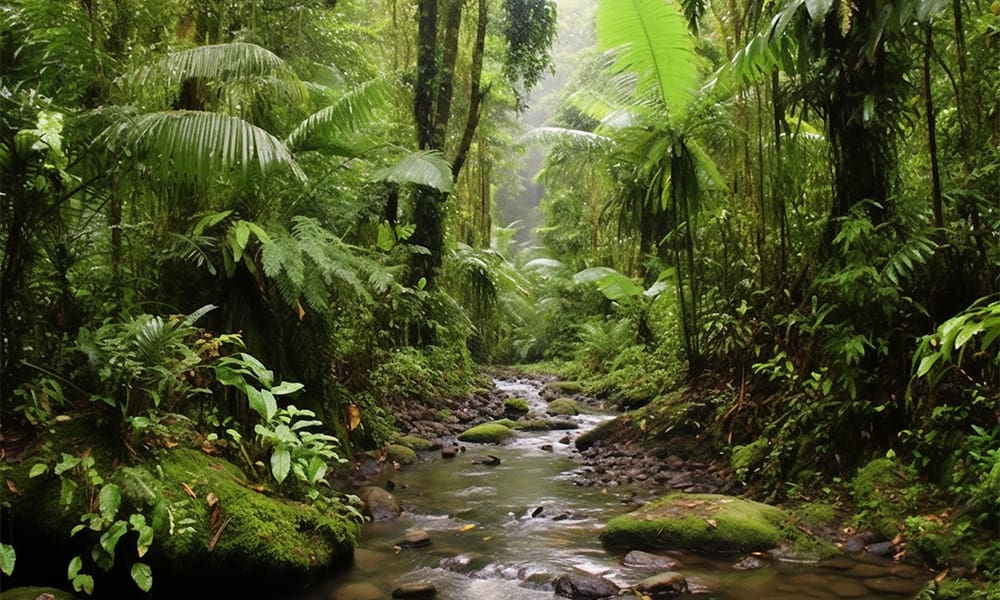The experts’ assessment is clear: humans are the major threat to Earth’s land, seas and all the living things they shelter, including ourselves. The COP16 biodiversity summit in Cali, Colombia, enters its second week Monday to assess, and ramp up, progress towards achieving 23 targets agreed in Canada two years ago to halt and reverse nature destruction by 2030. The science in numbers:
2/3 of oceans degraded
Three-quarters of Earth’s surface has already been significantly altered and two-thirds of oceans degraded by humankind’s rapacious consumption, according to the IPBES intergovernmental science and policy body on biodiversity. Globally, over a third of inland wetlands declined from 1970 to 2015 — a rate three times that of forest loss.
“Land degradation through human activities is undermining the well-being of at least 3.2 billion people,” according to the IPBES’s latest report. But it highlights that not all is lost, and the benefits of restoration would be 10 times higher than the costs.
One of the 23 targets of the so-called Kunming-Montreal Global Biodiversity Framework is for 30 percent of degraded land, inland water, marine and coastal ecosystems to be under “effective restoration” by 2030.
A million species threatened
Over a quarter of plants and animals assessed on the International Union for Conservation of Nature’s Red List of threatened species risk extinction. According to the IPBES, about a million species are at risk. Pollinators, essential to the reproduction of plants and three-quarters of crops that feed humanity, are at the forefront, dying off fast.
Corals — on which the food and labor of some 850 million people depend — are another striking example. These animals, whose reefs provide feeding and spawning grounds for a multitude of creatures, could all but disappear in a world 2 degrees Celsius (3.6 degrees Fahrenheit) warmer than pre-industrial levels.
This is the upper limit of average planet warming the world is seeking not to exceed under the 2015 Paris Agreement on curbing Earth-warming greenhouse gases.
Five horsemen of the apocalypse
For the UN, the biodiversity crisis has five causes, all human-induced and nicknamed the “Five Horsemen of the Apocalypse.” They are habitat destruction (for agriculture or human infrastructure), over-exploitation of resources such as water, climate change, pollution and the spread of invasive species.
Climate change is likely to become the main driver of biodiversity destruction by 2050, experts say.
Half of GDP
More than half (55%) of the world’s gross domestic product, some $58 trillion, depends “heavily or moderately” on nature and its services, according to auditing giant PwC.
Agriculture, forestry, fisheries and aquaculture, the food and beverage industry and construction are the sectors most exposed to nature loss. Pollination services, safe water, and disease control are other, nigh-incalculable, benefits derived from nature.
Indian economist Pavan Sukhdev, who led a research project entitled The Economics of Ecosystems and Biodiversity (TEEB) had estimated that biodiversity loss comes at a cost of between 1.35 trillion and 3.1 trillion euros ($1.75 trillion and $4 trillion) per year.
$2.6 billion in subsidies
A report in September by the Earth Track monitor said environmentally harmful subsidies to industries were worth at least $2.6 trillion, equivalent to 2.5 percent of global GDP.
This dwarfs the Kunming-Montreal framework’s target of mobilizing $200 billion per year by 2030 for nature protection. Harmful industries that benefit from subsidies include fisheries, agriculture and fossil fuel producers. Another target of the biodiversity framework is to reduce harmful subsidies and tax benefits by “at least $500 billion per year” by 2030.






